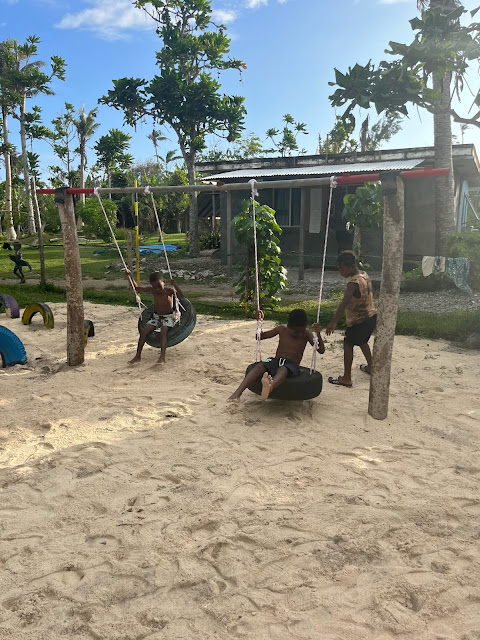As law students from Willamette University College of Law, our journey to Vanuatu was an eye-opening experience into the challenges and strides in addressing domestic violence on the island. During our visit, we had the privilege of meeting with a sergeant from the Family Protection Unit. The Family Protection Unit, we learned, is one of the busiest in Vanuatu, which is responsible for handling domestic violence cases. There's a growing awareness among the populace that domestic violence is not only a moral wrong, but also a legal one. This awareness has led to an increase in reports from all family members, not just wives. The sergeant shared that while there's a sense that things are improving, the unit remains as busy as ever. There remains a prevalent stigma, with men often perceived as the hierarchy of the home.
This mindset not only perpetuates the problem but also discourages male victims from coming forward. The complexity of the situation is evident, with issues ranging from the stigma associated with reporting and the cultural norms hindering the reporting of domestic violence, as people are reluctant to offend their community and their leaders. Sexual violence is also a significant issue, exacerbated by cultural taboos around discussing sex. Efforts to combat these issues have been bolstered by increased funding and support from Australian and New Zealand police forces.
However, challenges remain. There is pressure from chiefs and elders to handle matters internally rather than involving the police. This makes it difficult for victims, especially children, to understand and report these crimes. The Family Protection Act of 2008 has helped curb corporal punishment, and schools are now more vigilant in reporting abuse cases involving children. Despite these efforts, there are still significant barriers to overcoming domestic violence in Vanuatu. Many women endure abuse without reporting, influenced by factors like reputation, community pressure, and religious teachings. The concept of bride price, while tradition, is misconstrued as ownership over the bride, further complicating matters.
Our group also participated in a community service project at a local kindergarten. This experience was not just about giving back; it was a lesson in cultural exchange, teamwork, and the joy of making a tangible difference in the lives of others. Our group, eager and ready to contribute, was divided into two teams. The first team undertook the task of revamping the interior of a classroom. The result was a beautiful mural.
The highlight of the day came when our work was completed. We watched with delight as the children rushed to the playground, their faces lighting up at the sight of the new equipment and the colorful mural. Their laughter and excitement were infectious, and soon we found ourselves joining in, playing soccer, and interacting with the children on their newly refurbished playground.
This experience was more than just a service project; as law students, we often focus on the theoretical and procedural aspects of justice, but here, in this small village on the island of Efate, we were reminded of the human side of our profession. We were reminded that at the heart of the law is the desire to serve, protect, and uplift communities. This international experience provided students from the Willamette College of Law with a different perspective on what life is like for those in different corners of the globe. This class pushed students out of their comfort zone to create future problem solvers that can work and lead in an environment of constant stress, chaos, failure, and hardship. We learned not only about the people of Vanuatu and their culture, but on how to challenge ourselves physically and intellectually. Vanuatu is a beautiful place, but like many places it needs work. Being a part of this class forced the students to analyze and think critically on possible solutions to stymie the harmful practices to women and children, while seeking to preserve the community’s culture. I believe one of the goals of this trip was to get students to think about future generations. I think its crucial that our generation make the effort to ensure that they live in a world far better than the one we have today. Without the guidance of Professor Buske and the work we did in Vanuatu I may have never learned that there is always something beneath the surface. It takes empathy, patience, hard work, and an ability to persevere through adversity that not only makes good lawyers but good human beings.















No comments:
Post a Comment